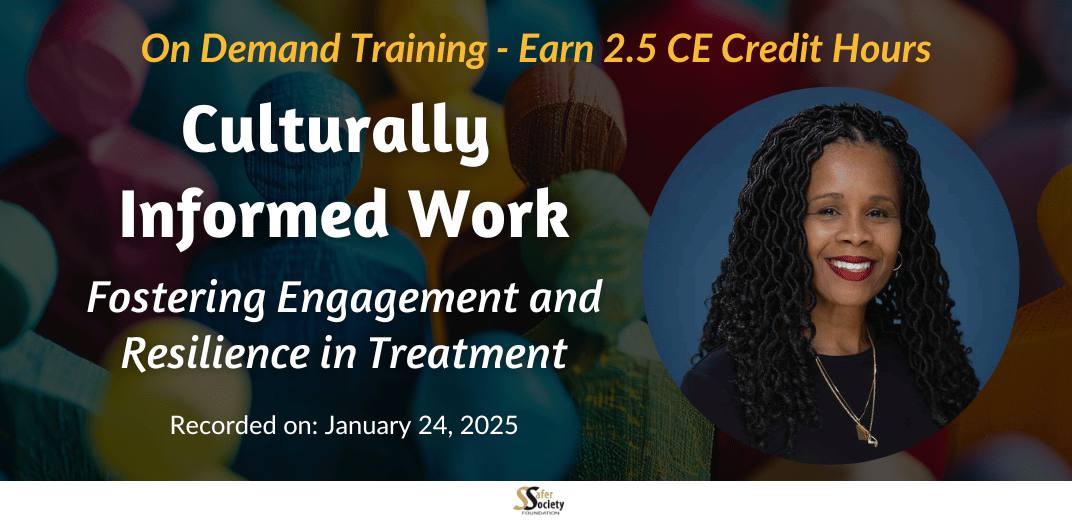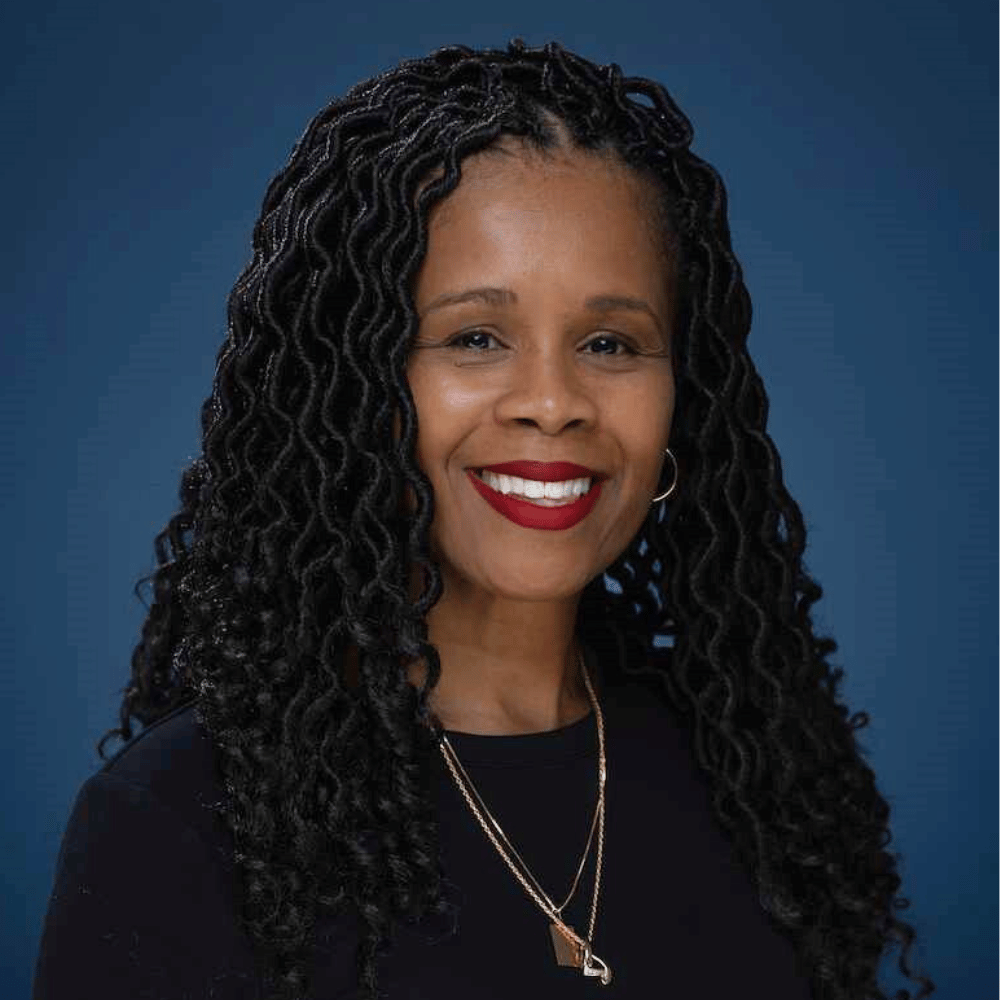
Culturally Informed Work: Fostering Engagement and Resilience in Treatment
Already purchased an On Demand training?
Click here to access your Safer Society On-Demand Training Center account.
Culturally informed treatment approaches have gained significant recognition among mental health professionals as essential for effective client engagement and therapeutic outcomes. By acknowledging the intricate interplay between a client’s cultural background, values, and experiences, these approaches lay the groundwork for meaningful therapeutic relationships. If we can’t connect to our clients at these levels, how can we expect them to fully engage in treatment?
 The benefits of culturally informed treatment practices are profound, as they create a safe and trusting environment, help clients cope with racial disparities in the systems with which they are involved, enhance the effectiveness of treatment, lead to more accurate assessments and helpful interventions, and ultimately foster resilience in clients.
The benefits of culturally informed treatment practices are profound, as they create a safe and trusting environment, help clients cope with racial disparities in the systems with which they are involved, enhance the effectiveness of treatment, lead to more accurate assessments and helpful interventions, and ultimately foster resilience in clients.
Dr. Tyffani Monford’s training is designed to focus on how professionals can best practice in a culturally informed manner. It covers several key areas:
- Cultural frameworks and intersectionality
- The impact of culture, race, and privilege in working with individuals who have been abused and their families.
- Critical issues within child welfare, law enforcement, and the juvenile justice system
- Varied meanings of “family” and “community” among clients of color.
- Cultural perspectives on mental health, the systems they interact with, incarceration, disclosure of harmful behaviors, and healthy sexuality
By providing a safe environment for reflection and discussion, this training fosters the development of culturally responsive and effective mental health care practices.
1) Integrate cultural factors into treatment discussions and interventions with clients.
2) Describe the concept of intersectionality and its influence on clients’ lived experiences.
3) Explain cultural betrayal trauma theory and its relevance to client care.
4) Examine how assessment measures can unintentionally pathologize clients of color and identify strategies to mitigate this bias.
Audience
This training is primarily for professionals working with individuals experiencing complex trauma, particularly those who have been affected by abuse. This includes social workers, psychologists, clinical counselors, and paraprofessionals.
Content Level
Disclosure
Continuing Education Approval
American Psychological Association (APA)
Safer Society Foundation, Inc. is approved by the American Psychological Association (APA) to sponsor continuing education for psychologists. Safer Society Foundation, Inc. maintains responsibility for this program and its content.
Who's Presenting

Tyffani Monford, PsyD
Dr. Tyffani Monford is a licensed psychologist. She has served as a consultant and trainer under various federal and state grants. In addition, Dr. Monford has been appointed to various state and county committees focused on those within the juvenile justice system. Dr. Monford provides mental health trainings and has served as a panelist at conferences focused on culturally informed mental health services, gender-responsive treatment, the school-to-prison pipeline and black girls, educating black girls in white spaces, intersectionality and social justice work throughout the United States. She has been featured on local and national news programs addressing the importance of emotional wellness in Black communities, mental health in times of national crisis, and the school-to-prison pipeline’s impact on Black Girls.
Dr. Monford is the Owner of Monford Dent Consulting & Psychological Services, LLC through which she provides ongoing mental health consultation and assessments. In 2020, she co-founded Centering Sisters, LLC, an organization dedicated to projects that center the needs of Black Women, Girls, and Femmes.
Dr. Monford is the author of three books: Girls Got Issues: A Woman’s Guide to Self-discovery & Healing, You Got This! A Girl’s Guide to Growing Up, and Black Girl: Unapologetically and the co-author of two others: Becoming Who I Want to Be: A Good Lives Workbook for Young Women and its accompanying Counselor’s Edition. Dr. Monford’s primary area of interests are sexual violence prevention and intervention on the continuum, the role of intersectionality in the lives of Black and Brown girls/women, and culturally informed work with those within the juvenile justice and educational systems.
